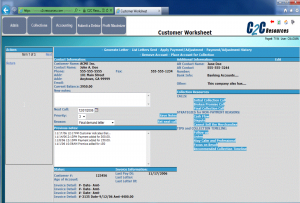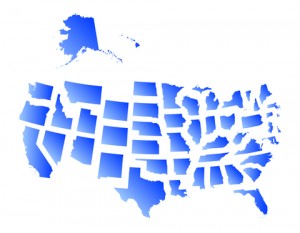 As a business owner, your collection call team will lead you to increasing cash flow. But is a good debt collector born with “it†or taught “it� For small businesses and start-ups, finding the right person on the team is particularly important because often team members wear multiple hats; only needing to step into the role when needed.
As a business owner, your collection call team will lead you to increasing cash flow. But is a good debt collector born with “it†or taught “it� For small businesses and start-ups, finding the right person on the team is particularly important because often team members wear multiple hats; only needing to step into the role when needed.
We think the right person has a combination of the right personality traits and proper training. Don’t always go for the sales person or accounts receivable person on the team. While they may be directly related to the process, they may not have the personality needed to deal with potentially intense situations.
When considering a team member, look for the following traits:
-Â Â Â Â Â Â Â Â Â Problem-solver: Often driven to find a solution, the problem solver is going to approach the situation with unique ideas. They will be results driven, even if the debtor becomes upset during the process.
-Â Â Â Â Â Â Â Â Â Self-motivator: Getting on a call is nerve-wracking because the debt collector does not always know how the debtor will react. By having someone with a keen sense of self-motivation, they will be driven to get the work done.
-Â Â Â Â Â Â Â Â Â Tenacity: If a debtor is persistent with providing reasons as to why they cannot pay, the collector will need to be just as persistent to make sure that the call ends with an action item of next steps in the payment process.
And, provide the following training:
-         Selling: The debt collector on your team needs to be able to prove to the debtor that they must pay. This is very similar to a salesperson’s role. By providing the team member with proven tactics you can prepare them for the most challenging calls.
-Â Â Â Â Â Â Â Â Â Customer Service: While it may be a good idea to pick the most tenacious person on the team, they also need to have good customer service skills. Being too controlling during the situation could turn the customer off and lead to no payment. The ideal candidate would have a good balance.
Finding the right person on your team to handle debt collection calls goes beyond the ability to pleasantly interact with customers. It requires a combination of skills to be effective.
Do you have the right person for the job on your team?
 At C2C Resources, we like to provide information not only to our existing 25,000+ customers but also to would-be customers, to help them improve their in-house collection processes.
At C2C Resources, we like to provide information not only to our existing 25,000+ customers but also to would-be customers, to help them improve their in-house collection processes.


 Collection Agencies do not all operate in the same way
Collection Agencies do not all operate in the same way Over 20 states do require commercial collection agencies to be licensed. Oddly enough, many agencies ignore the law!
Over 20 states do require commercial collection agencies to be licensed. Oddly enough, many agencies ignore the law! When you call your past due customer, it’s quite likely that yours is not the only collection call he’s taken that day. In fact, he may be staring at a stack of bills an inch thick while on the phone with another creditor right now!
When you call your past due customer, it’s quite likely that yours is not the only collection call he’s taken that day. In fact, he may be staring at a stack of bills an inch thick while on the phone with another creditor right now!